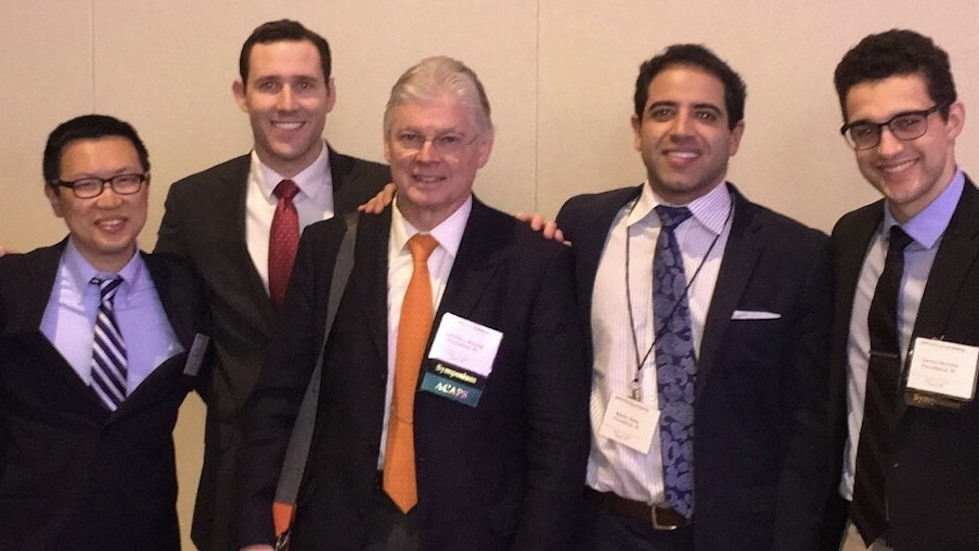Research
Our residents and faculty are engaged in multiple ongoing clinical research projects and frequently present research findings at local, regional, and national meetings.
Research
Our residents and faculty are engaged in multiple ongoing clinical research projects and frequently present research findings at local, regional, and national meetings.
The Brown University Plastic Surgery Research Program (BU-PSRP)
Launched in July 2022, the BU-PSRP is designed to elevate the research output of our faculty, residents, fellows, and medical students. The program is built on three core pillars:
- Formal Research Curriculum: Monthly meetings are held to discuss ongoing projects, new study ideas, and provide structured guidance on data interpretation, study design, and project progress. These meetings offer opportunities for feedback and mentorship, promoting collaboration and accountability.
- Centralized Research Database: A comprehensive Google Drive repository, known as the Research Compendium, houses all ongoing research materials, templates, and resources. It facilitates real-time collaboration and tracks the progress of studies, from data collection to manuscript submission.
- Mentorship and Collaboration: Our program encourages frequent interactions among faculty, residents, and students, fostering an environment of continuous learning and interdisciplinary collaboration. This dynamic helps transform the mentorship experience into a more holistic, interdepartmental exchange, benefiting all involved.
Key Achievements:
- Increased Publications and Presentations: In its first year, the BU-PSRP led to a significant increase in scholarly output, with more publications and presentations than in previous years.
- Cross-Collaboration: The program fosters an environment of shared success across teams, providing a foundation for interdisciplinary cooperation.
- Streamlined Workflow: By centralizing research efforts, we’ve reduced siloed work and enhanced project efficiency.
Program Structure:
- Research Meetings: Monthly meetings are scheduled to allow researchers to present ongoing work, receive feedback, and refine projects. The department also hosts quarterly department-wide meetings to showcase completed projects and engage with the broader academic community.
- Research Leadership: A novel Research Chair role has been established to oversee and coordinate the program. Research fellows assist with managing ongoing projects, ensuring timely updates, and auditing the centralized database to maintain research continuity.
- Centralized Repository (Research Compendium): The Compendium serves as a single source for all project documentation, including grants, IRB submissions, meeting notes, and research templates. It provides an organized, accessible space for team members to collaborate and track the progress of multiple studies across different subspecialties.
Mentorship and Core Research Identity:
Prior to the BU-PSRP, mentorship between faculty, residents, and students was valuable but often isolated. The formalization of our research structure has allowed for greater interaction, with faculty and senior residents offering real-time advice and guidance on clinical research execution. The development of a core research identity has cultivated a cohesive environment in which mentorship is continuous and collaborative.
3D Printing Lab
3D printing enables rapid creation and manufacture of individual patient models from original designs or medical imaging data. These models can be used for surgical planning, procedural training for residents and medical students, and the design and manufacture of surgical instruments, implants and prostheses. Current availability of this advanced technology permits Rhode Island physicians to utilize 3D printing in multiple, diverse settings to help improve their medical practice and optimize healthcare outcomes.
This lab boasts a full-color, multi-material Stratasys J750 Polyjet 3D printer among its additive manufacturing devices. The lab facilitates multiple collaborations both within and outside of Rhode Island Hospital and Brown University, with services available for use by physicians across all specialties. Learn more about our state-of-the-art 3D printing lab and its practical usage from this lecture by Dr. Albert Woo.
How Medical 3D Printing Is Shaping the Future of Surgery
Q&A with Albert S. Woo, MD Forging a New Frontier in 3D Printing during COVID-19 Pandemic
Basic Science Lab
Our faculty staff a NIH-funded lab that has developed AAV-vectors for angiogenic genes in flaps, wounds, tendons, and ligaments. One of the lab's newest recruit has an RO1 grants investigating epigenetic control of stem cell plasticity in myocytes. Advances in the lab have allowed for the development of a spin out company to take inventions to clinical trials.
Clinical Research
We have multiple ongoing clinical research projects related to facial and hand trauma, 3-D printing’s clinical applications, medical education, cleft and craniosynostosis clinical outcomes, among others. Research performed by our Department was the recipient of a research grant from The Plastic Surgery Foundation. Our research is frequently presented at local, regional, and national meetings in plastic surgery.
